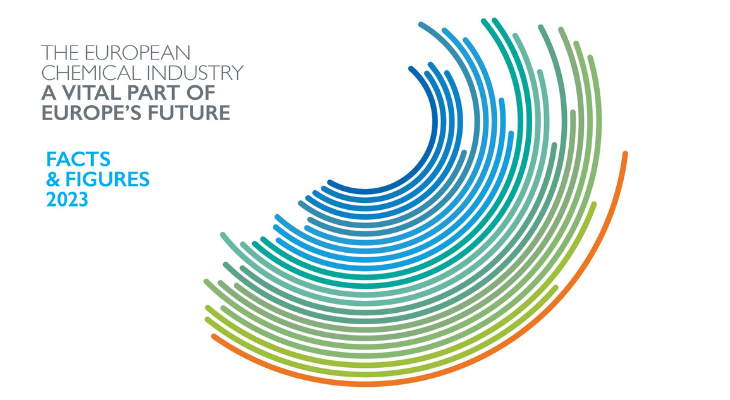Facts & Figures 2023: Navigating the Future of the EU27 Chemical Industry

Versatile Contributions to Society
The chemical industry serves as a linchpin in supporting almost all sectors of the economy, playing a pivotal role in shaping a sustainable society. Beyond providing employment to 1.2 million people in Europe, the industry acts as a catalyst for innovation, offering solutions that extend the lifespan of renewable energy infrastructure, turn waste into sustainable fibres, and enhance the efficiency of electric vehicle batteries.
Competitive Landscape Shifts
However, despite its diverse contributions, the EU27 chemical industry is facing headwinds, losing its competitive edge due to a myriad of challenges. The ongoing Russia-Ukraine conflict, weakened demand, soaring energy costs, and the spectres of rising interest rates and inflation have collectively led to a substantial 10.6% decline in production from January to September 2023. The industry’s capacity utilization fell to 74.1% in the third quarter of 2023, and the EU27’s global chemical sales contribution slipped from 27% in 2002 to 14% in 2022.
China’s Ascent in the Global Chemical Landscape
While Europe grapples with economic challenges, China has emerged as the global leader in chemicals production, contributing over 40% to worldwide chemical sales. China’s prowess in technology innovation and international trade has propelled its dominance in international markets. However, the surge in chemical production in China raises concerns, with potential implications for global competitiveness as Chinese companies may intend to boost capacity utilization by exporting more.
The Imperative for a Strong European Chemical Industry
Amidst these challenges, the importance of maintaining a robust European chemical industry cannot be overstated. The industry is currently undergoing a monumental transformation, aligning with the ambitious 2050 EU Green Deal goals. This transformation, which entails becoming climate-neutral, circular, and digital, necessitates substantial investments totaling billions between now and the 2050 deadline. A strong European chemical industry is fundamental to successfully implementing the European Green Deal, a cornerstone for modern life and clean technologies.
Call for Strategic Political Priorities
In light of these circumstances, creating a compelling business case for the EU chemical industry should be a primary strategic political priority for both the European Commission and Member States governments. Chemistry remains essential for modern life and clean tech, and the industry’s successful transition requires a deeply integrated European Industrial Strategy harmonized with climate and energy policies. Such a strategy should provide clear steps, predictability, and instil investor confidence to navigate the transformative journey towards a sustainable and competitive future.